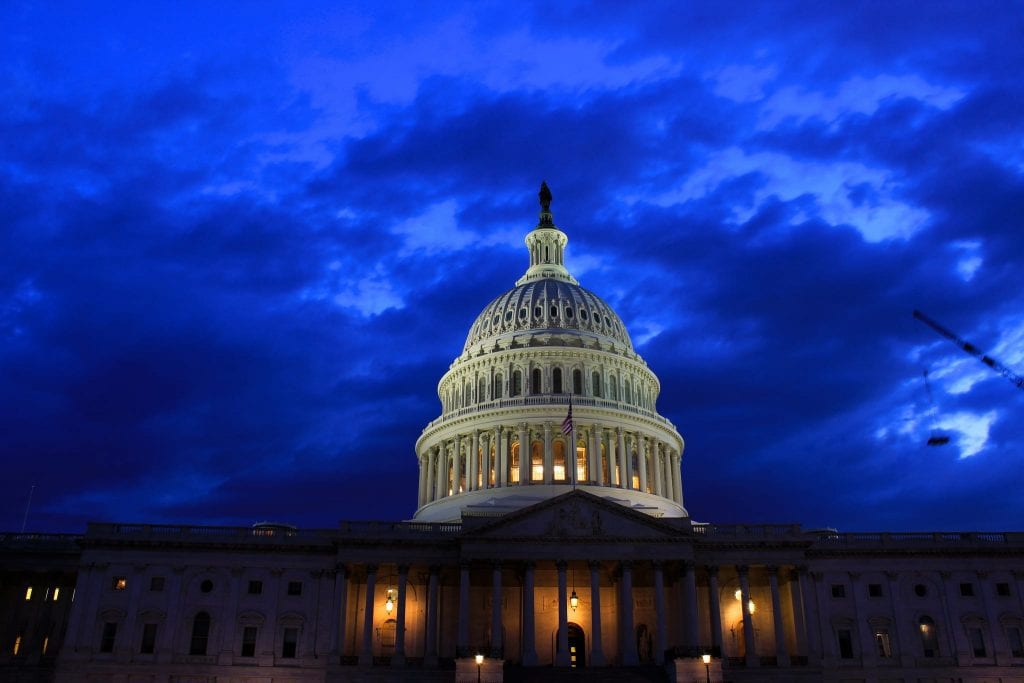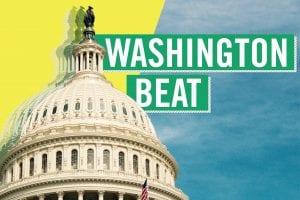Skift Take
Midterm elections have rarely been this galvanizing or controversial. For industry observers and executives, the question remains of how changes in Washington will impact the business of travel. With a divided government, expect most of the changes to regulations to come from the Trump administration.
Politics and regulation touch every aspect of travel. This regular column will take you behind the scenes in the nation's capital with unique insights for the industry. Expect a far-ranging conversation that will cover everything from travel security to immigration to tariffs to elections. If it's coming out of Washington, and it's impacting travel, it's fair game for the Washington Beat.
This is my first column for Skift, so I wanted to share some of what you will be reading in the Washington Beat. In D.C., the political and policy debates are raucous and oftentimes unpredictable, and while the travel industry is a big voice, it has diverse policy issues, too. Consequently, it can be difficult to read the tea leaves.
I’ve been a policy and political advisor for many years, and in all that time, the innovation and excitement of the travel industry captured my imagination. What I have found is that when Washington works for travel, it can have an incredibly positive impact, but when Washington does not work for travel, the impact can be devastating.
So, through this column, I hope to give you insight through my personal lens into the workings of Washington, how it is impacting the business of travel, and help you better understand the opportunities, and risks, that are coming out of Washington.
And what better time to launch a Washington column than the day of the midterms.
Needless to say, the closing days before midterm elections are always a jittery time in Washington — and made much more so when there is a possible change of control of Congress.
The U.S. House of Representatives, given recent polling and historical results, is increasingly likely to flip control from the GOP to Democrats. In the Senate, Republicans will likely maintain their majority. It is a truism that a House of an opposing party serves as a check on the president’s legislative agenda. But what does that mean for the business of travel?
After the Bush and Obama midterm election losses, those administrations amped up their regulatory agendas. A split Congress in 2019 signals the president’s regulatory agenda will heat up, and the Trump administration will flex its regulatory power. Experience points to one major trend: The administration will solidify its approach to regulating travel, while Congress will be busy addressing major national issues like keeping the government open, trade, immigration, and national security.
Not surprisingly, the Trump Administration has prepared for this new phase by revving up the president’s phone and pen. The administration just released the, “Unified Agenda and Regulatory Reform.” Despite the Orwellian name, it is a dry read — 2,000-plus government rulemakings, with approximately 200 regulatory changes that will have a significant impact on travel.
The administration is planning changes in everything from the joint employer rule to consumer privacy regulations. The Department of Transportation (DOT) will issue new guidelines on how the airline industry should advertise its products and charge fees to customers. The Federal Trade Commission (FTC) is likely to follow suit, impacting not just airlines, but the hotel industry, online travel agencies, and online advertisers. At the other end of the spectrum, the agenda includes a new proposed rule to make biometrics the primary method of verifying visitors’ identity.
The new Congress in January 2018 may not take a back seat to every one of the Trump administration’s proposed regulatory changes — expect Congressional oversight like hearings and letters to the agencies to kick into high gear. However, those in powerful positions as committee chairmen and chairwomen in the new Congress are not likely to spend their political capital debating the details of a rulemaking at DOT or DHS when other, more press-worthy issues are the focus.
Election night results may also show the emergence of a new center in Congress, likely to be driven by historic turnout from suburban women and a strategy by Democrats to run candidates that appeal to the center. Governing will likely mean walking a tightrope between newly elected moderates and the those who are looking to strongly rebuke the president.
With more moderates in Congress, and narrow governing majorities, Congressional leaders may focus on keeping the government open and tackling two of the biggest issues at hand for travel businesses in the U.S. that rely on a diverse large workforce and a robust economy: immigration and infrastructure. And should the economy begin sputtering or slowing down due to rising interest rates, trade wars, or a general economic slowdown, it is this new group of moderates in Congress who will have to step in, negotiate with the administration, and find a path forward.
There is, no doubt, major changes around the corner. The administration’s first salvo of a unified policy agenda, and the new Congress, will have a big impact on the business of travel.
Maryam Khan Cope is managing partner for GoldsteinCope Policy Solutions, a bipartisan lobbying firm she co-founded after serving at senior levels in politics, policy and business. She has advised senators, C-suite executives, and non-profits. Previously, Khan Cope was vice president for government affairs at the American Hotel & Lodging Association. She’s on Twitter at @CopeWithTech.
The Daily Newsletter
Our daily coverage of the global travel industry. Written by editors and analysts from across Skift’s brands.
Have a confidential tip for Skift? Get in touch
Tags: congress, Department of Transportation, faa, midterm elections, Trump Administration
Photo credit: A divided Congress could mean many decisions impact travel could come directly from the White House. Daniel Huizinga / Flickr

